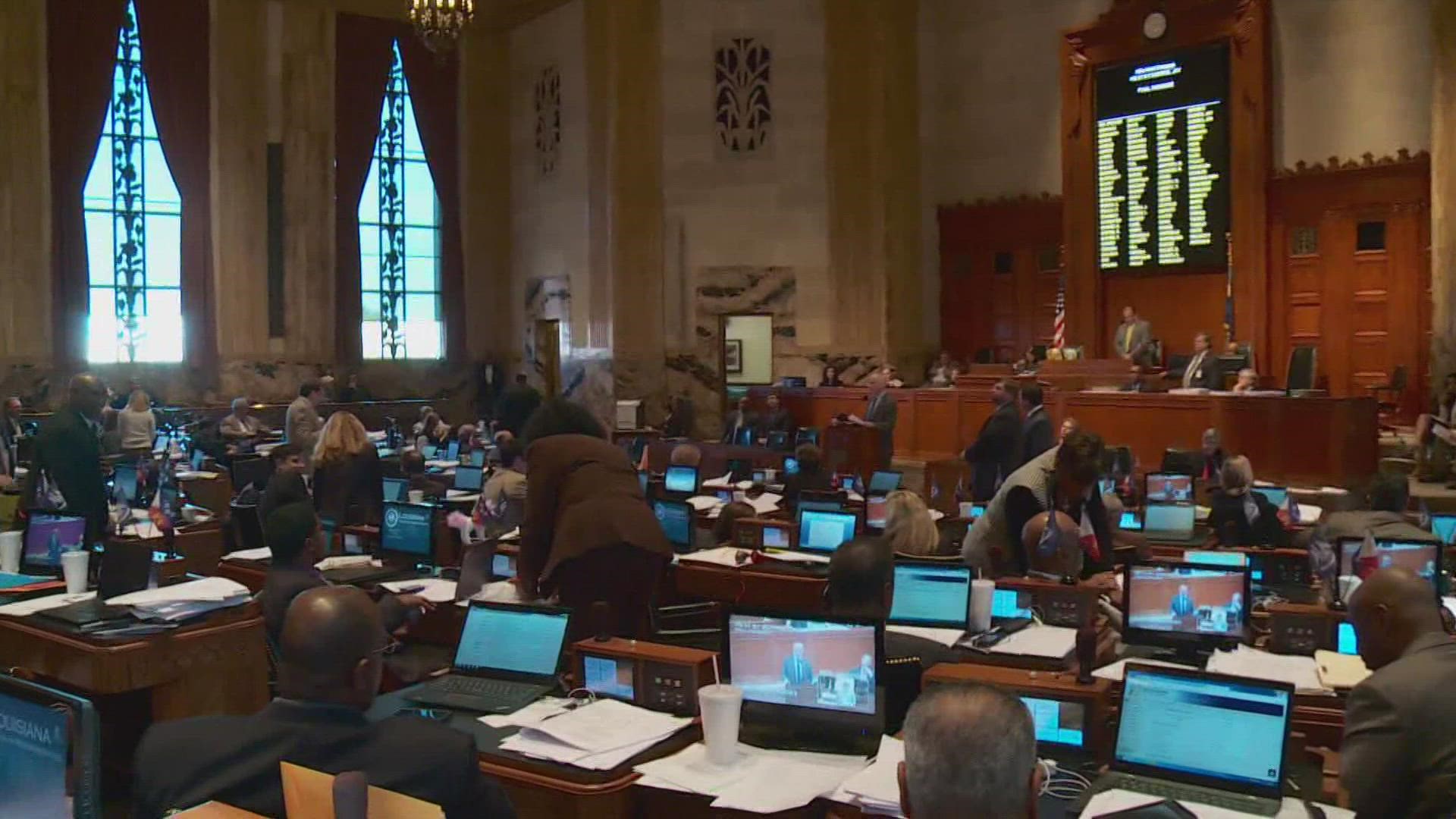BATON ROUGE, La. — Louisiana Gov. John Bel Edwards vetoed a new congressional redistricting plan for the state Wednesday night because it lacks a second majority-Black district.
The Democratic governor's decision sets up a showdown with the Republican-dominated Legislature that passed the plan in a recent special session. Lawmakers open a regular session Monday and are expected to attempt a veto override. If they opt not to try an override, or if an override fails, they could simply pass the vetoed map again with a majority vote and send it to Edwards again.
The new maps are similar to existing maps, with boundary changes made to account for population shifts reflected in the 2020 census. The state's six congressional seats are currently held by five white Republicans and one Black Democrat.
Census data showed Louisiana’s population identified as nearly 56% white, more than 31% Black and nearly 7% Hispanic or Latino.
“I have vetoed the proposed congressional map drawn by Louisiana’s Legislature because it does not include a second majority African American district, despite Black voters making up almost a third of Louisianans per the latest U.S. Census data,” Edwards said. “This map is simply not fair to the people of Louisiana and does not meet the standards set forth in the federal Voting Rights Act.”
During the Legislature's recent redistricting session, Rep. John Stefanski, the Crowley Republican who headed up the remapping effort in the House, said he believes the maps comply with the law and balance a wide variety of factors that must be considered in redistricting.
“I took our population, I took the geography of the state, I took our communities of interest, I took the will of the public, the will of the Legislature and I balanced all of that with the law,” Stefanski said on the House floor.
Sen. Sharon Hewitt, a Slidell Republican and a leader in the remapping effort, also defended the plans, insisting that trying to include the state’s widely dispersed Black population in two separate congressional districts would result in two districts with very narrow Black majorities that could result in diminishing Black voter power.
Voting rights advocates who opposed the maps dispute that argument, saying their research shows Black candidates could win in the model districts they have seen.
The bills passed the Senate with more than the two-thirds majority needed to override a veto, should Edwards issue one. In the House, the plan got 67 votes on Feb. 18, the final day of the special session. That was three short of what would be needed to override a veto in the 105-member body. In vetoing the plan, Edwards faced the possibility that the House’s 67 Republicans would rally with independents and one or two Democrats to override the veto.
Opponents of the plan have vowed to challenge it in court, should it become law. But the prospects for success of such a challenge became murkier last month when the U.S. Supreme Court put on hold a lower court ruling that Alabama must draw new congressional districts before the 2022 elections to increase Black voting power.

